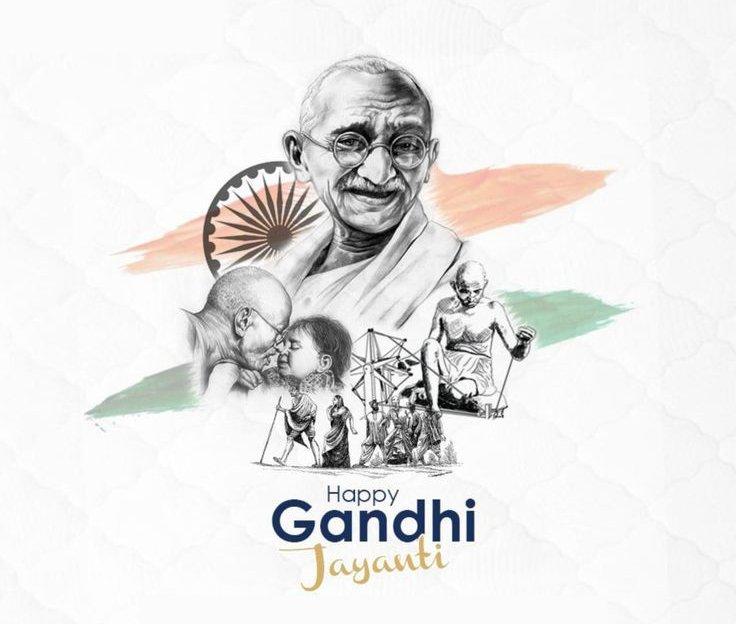Gandhi Jayanti 2025 Speech Ideas for Students in English: Dear esteemed teachers, respected parents, and my dear friends, it is a great honor for me to stand before you on this significant day, as we remember and celebrate the birth anniversary of Mohandas Karamchand Gandhi, fondly known as Mahatma Gandhi or Bapuji. Gandhi Jayanti is a time to reflect on the values, principles, and teachings of this great leader, who demonstrated that it is possible to bring about monumental change through peace and non-violence.
1. Gandhi’s Philosophy and Teachings
Gandhi’s philosophies of non-violence (Ahimsa) and truth (Satya) are the foundations of his moral and political thoughts. He believed that non-violence is the greatest force at the disposal of mankind and that it is mightier than any weapon of destruction devised by man. He led the Indian National Congress and mobilized millions in the struggle against British colonial rule, employing non-violent civil disobedience. His leadership in the Salt March of 1930 is a striking example of his commitment to non-violence. By simply walking 240 miles to the Arabian Sea to make salt, he symbolically defied the oppressive salt tax imposed by the British, inspiring countless others to do the same and challenging the might of the British Empire without lifting a weapon.
2. Gandhi’s Vision of Swaraj
Swaraj, or self-rule, was at the heart of Gandhi’s vision for India. He wanted to see an India where every individual had the freedom to live life on their terms, within the bounds of moral and societal norms. He dreamt of a self-sufficient nation where communities were interdependent and sustainable. Village industries and Khadi were the reflections of this vision. For Gandhi, Swaraj was not just political independence but also economic and moral independence. His vision prompted the establishment of local industries, educational institutions, and initiatives to uplift the socio-economic condition of Indian villages, forming the groundwork for community-driven development.
3. Lessons from Gandhi’s Personal Life
The simplicity and humility exemplified in Gandhi’s personal life are profound lessons for all of us. He practiced what he preached and led a life of minimalism, believing in the idea of ‘Simple living, high thinking’. His dedication to a balanced and modest lifestyle, rigorous routine, and vegetarian diet highlighted his commitment to personal discipline and health. He embraced different religions and cultures, promoting unity in diversity and showcasing the strength of tolerance and acceptance. His life teaches us that true contentment comes from living in harmony with one’s principles and values.
4. Relevance of Gandhi’s Teachings in Today’s World
In the present world, where conflicts and violence are rampant, Gandhi’s teachings hold immense relevance. His philosophy of peaceful resistance and tolerance can be the beacon of light in resolving modern-day crises and conflicts. Issues such as racial discrimination, religious intolerance, and social inequality can be mitigated through the application of his principles. The International Day of Non-Violence, celebrated on Gandhi Jayanti, reminds us of our collective responsibility to promote peace, tolerance, and respect for one another, irrespective of our differences.
Let us embrace non-violence, pursue truth, foster tolerance, and work towards creating a more just, inclusive, and peaceful world. By walking on the path paved by Bapuji, we can contribute to building a society that he dreamt of, a society rooted in love, respect, and mutual coexistence. After all, in the words of Mahatma Gandhi himself, “You must be the change you wish to see in the world.”
Call to Action
Let us celebrate this day by pledging to live by the principles of truth and non-violence and to spread the message of peace, love, and harmony, envisioned by Bapuji, to every corner of the world.
Copyright@ India CSR
Also Read:







